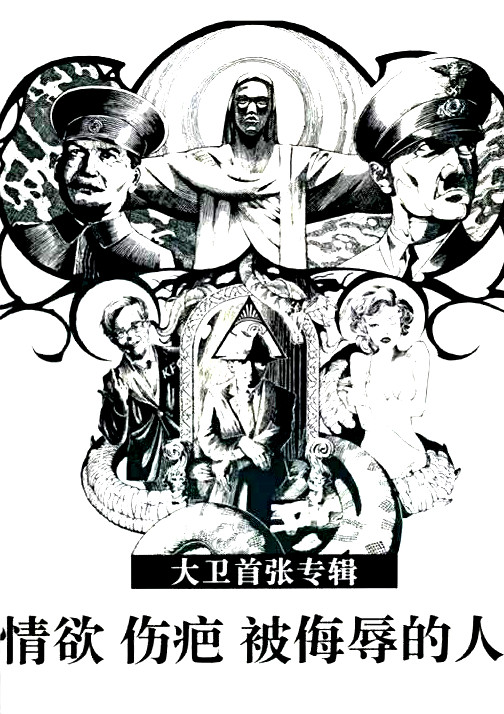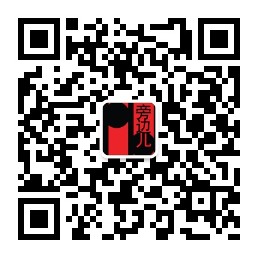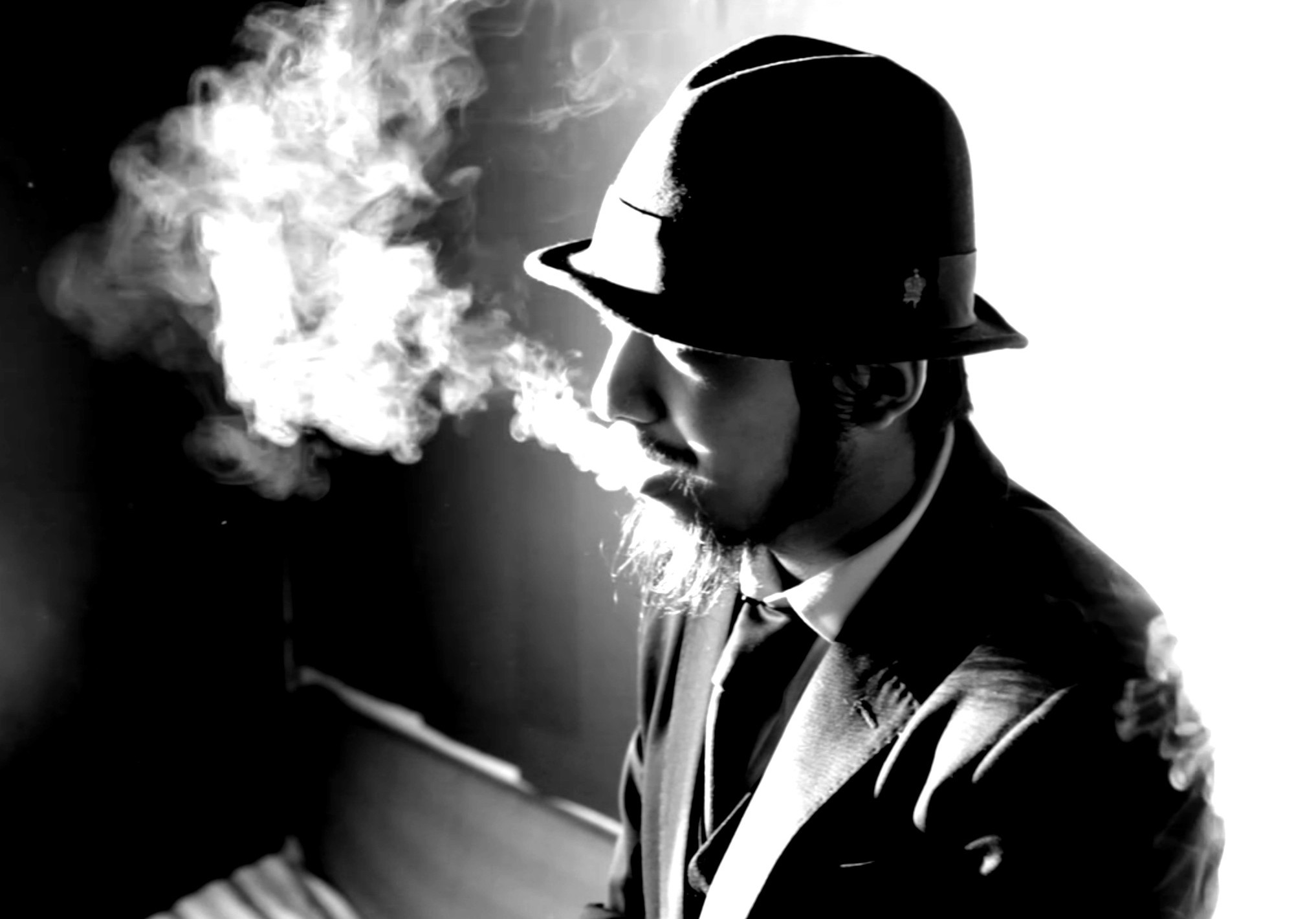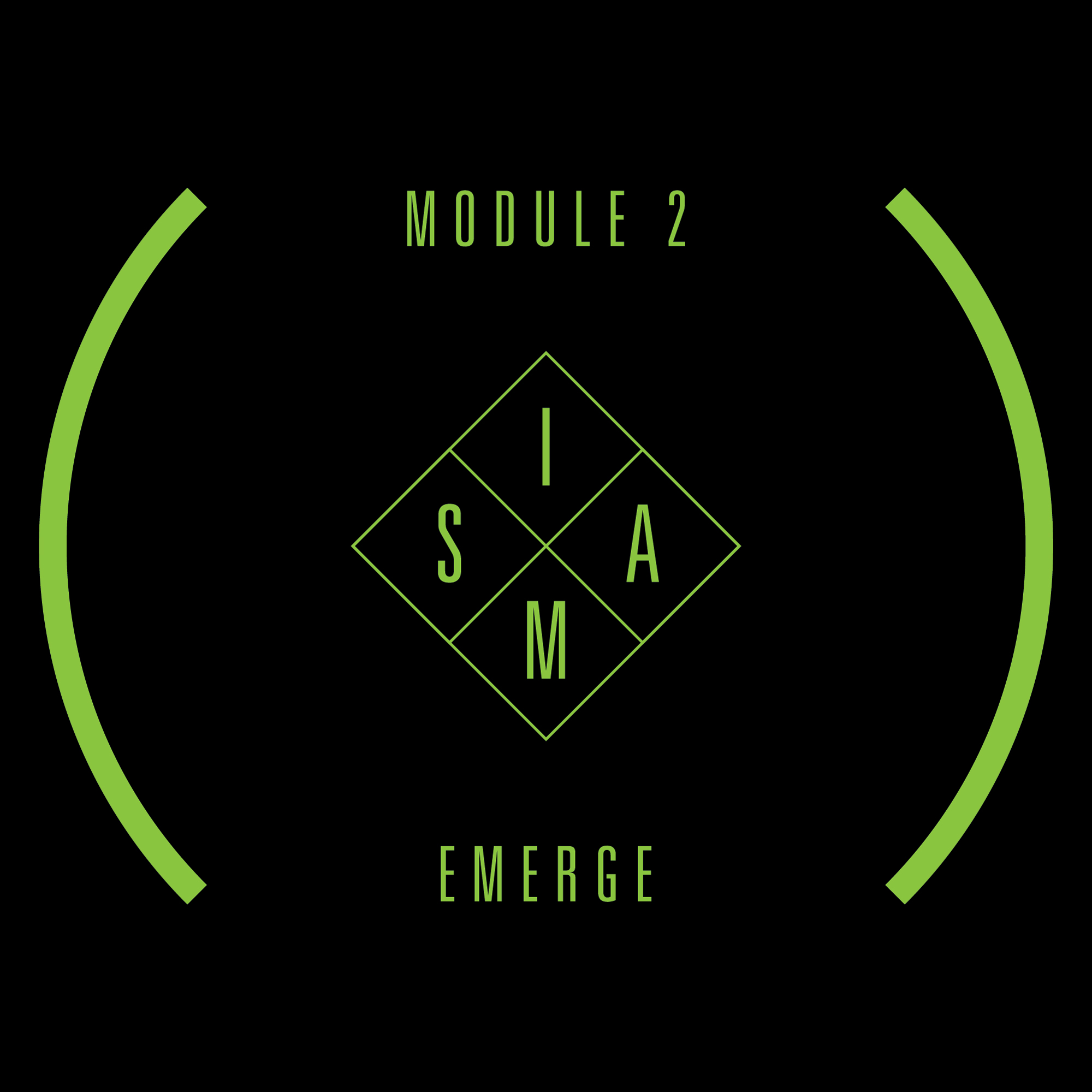采访:Dawei Interview, Part I (狂人)
By Josh, 2015年 12月 18日
《 中文采访在豆瓣音乐 》
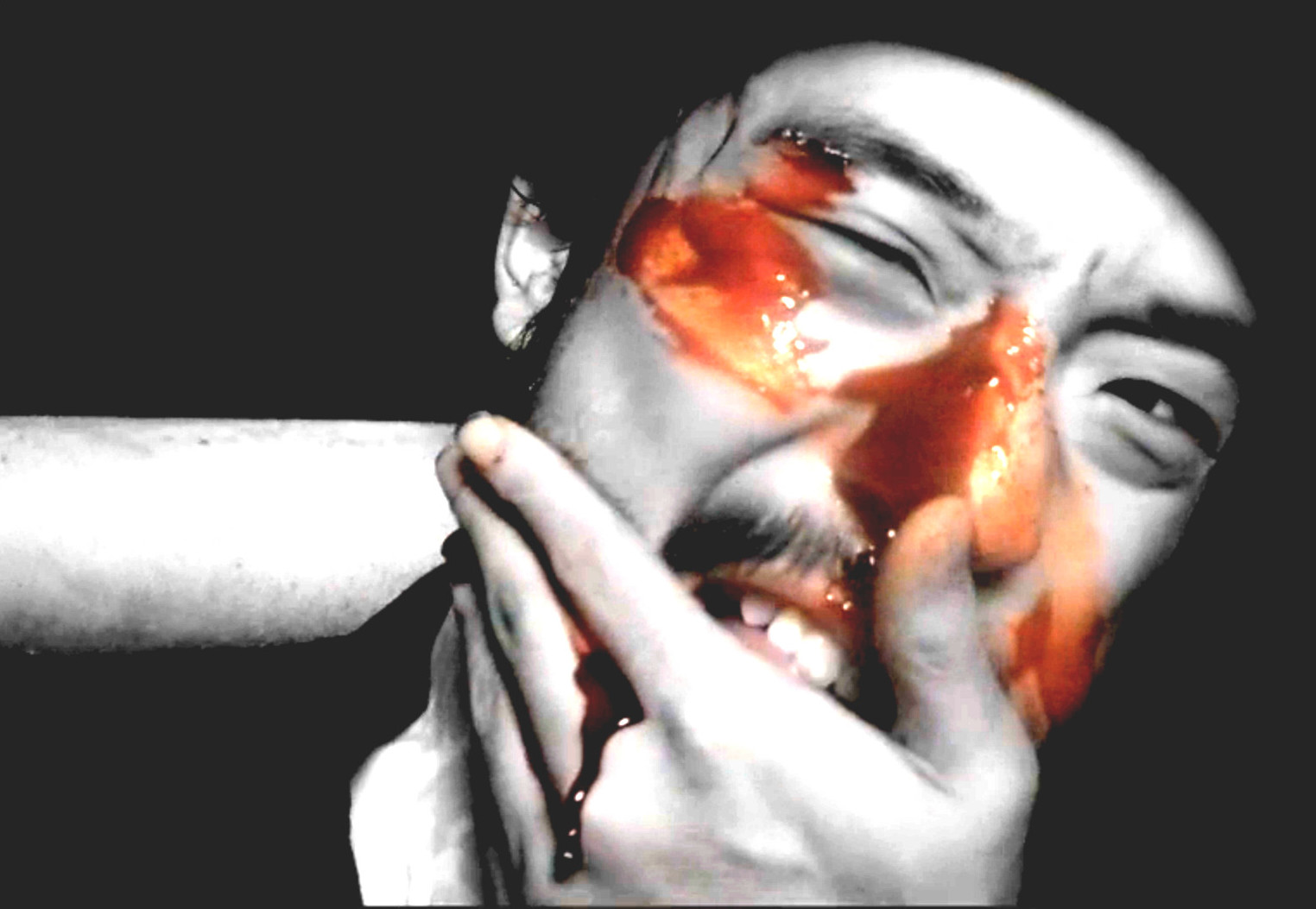
Rogue historian, madcap rapper; wushu shifu, battle master. Dawei is a major paradox in a small package, a true poet provocateur. He began training himself in the art of battle rapping while still a high school freshman, inspired by online videos of MC duels. He gained instant underground credibility when he won his first ever battle at now-defunct Lucky Street club White Rabbit, destroying opponents who direly underestimated the short kid in the Beijing public school uniform.
With his lyrically complex, often openly political songs and poems, Dawei remains a witting pariah on the outskirts of the Beijing hip hop underground, rejecting mainstream fame, wealth, and stability in an unflinching commitment to truth and purity in his art. Self-deprecating while self-aggrandizing, he’s the epitome of and antithesis to any MC stereotype.
Dawei has just released his first major work: Lust, Scars, The Insulted Man, a psycho-libidinal, alt-historical parable comprising the young artist’s worldview in sound (CD), image (DVD), and word (poetry book). In this three-part profile, we explore three faces of Dawei: the madman (狂人), the ruthless battle MC and martial artist; the poet (诗人), the artist as philosopher; and the lover (情人), a figure fusing the personal with the universal, the times with the timeless.
Part I: 狂人* offers a biographical portrait of the artist as a young man, finding the source of Dawei’s combative stage persona in a childhood history of domestic chaos and a precocious desire to explore the wide world beyond the walled garden of Beijing public school…

photo by Laurent Hou
1. Early Life
pangbianr: What was your early childhood like?
Dawei: I think I still haven’t grown up yet. I’m still drenched in my childhood. After I finish growing up, I’ll start to recall my childhood memories.
pangbianr: Your parents split up when you were quite young, right? When was that?
Dawei: They actually got divorced when I was seven, but I didn’t find out until later. One day my mom sat me down and told me. I always knew deep inside that my parents were different from my classmates’ parents, I could tell from the daily craziness. But because I was so young… I might have known the word “divorce”, but I was too young to understand the concept. But I always knew my parents were different.
pangbianr: What did your parents do for a living? Did you know?
Dawei: The craziness frightened me. I had so little curiosity toward their occupations because I believed their craziness had very little to do with their jobs. I simply wondered what was the core of that crazy tension between them. They were in a totally normal state with their friends and co-workers. It was only when they were together that it turned into insanity.
pangbianr: In what way were they crazy? What would you see or hear?
Dawei: What I can recall is endless arguments and fighting. That’s from a child’s point of view. But now that I’ve grown up, looking back, what really frightens me is the fact that human beings hurt each other for no reason. It’s like childhood trauma is your life, life itself. Conflict is really short, it’s like an orgasm. It comes and goes. But childhood trauma is something that stays with you, it’s a long-term status. In other words, conflict is sexual orgasm, but trauma is lust, libido.
pangbianr: After your parents split up, you lived with your mom. What would you do with your time? Obviously you were in school… Did you like it? Did you have hobbies? Friends?
Dawei: During that time, the domestic craziness filled every corner of my life. Now I have close to zero memories or impressions of that time. It’s fright and curiosity that fill that whole time gap.
pangbianr: What was your home life like? Did you have any specific interactions with your mom that make it so hard to recall memories from that time?
Dawei: To be honest, there was no interaction with my mom, only negativity. Negativity was the main interaction we had. I’m not capable, and also not willing, to recall those memories from the point of view of a child. I can only describe it now as an adult. The biggest part of the craziness was that my mom would constantly treat me as if I was my father. The vicious words she’d say to me were not words from a mother to a child, but from a wife to a hated spouse. That’s why I couldn’t understand most of the words my mom was saying to me. It was this unfathomable speech that made me frightened and curious. Not understanding the words made it scarier, made me closer to the fear. Being unable to understand is pure fear, fear itself.
pangbianr: Did you know where your father was at this time?
Dawei: I had no idea where he was. I still don’t know where he was at the time. [laughs] My mom would only give general accusations, like how he betrayed her, things like that.
pangbianr: But you eventually moved in with him, while you were still a kid. How did you get back in touch with him?
Dawei: Since we’re already talking about this much, we might as well talk about everything. [laughs] The story of me going back to my dad is quite an adventurous one. He knew that my mom was abusing me, but he couldn’t find the right chance to get me back. There was never an open window when my mom wasn’t there, when he couldn’t avoid getting into a physical fight with her.
Then, when I was 12, my mom took me to Yunnan, that’s when he decided to strike. After we finished traveling, my mom still had some business to do, so she asked her colleague to take me back to Beijing. My dad found out about it. Knowing our flight number and landing time, my dad and some of his buddies waited where the plane landed, at the spot where the shuttle bus takes the passengers to the terminal. They waited right at the foot of the ladder where we got down off the plane, and they took me. My mom’s colleague said, “No, his mom asked me to take him home.” And my dad said, “I’d like to see you try.” So then she said, “Ah… well then you take him.” [laughs] That’s how I entered my dad’s world.
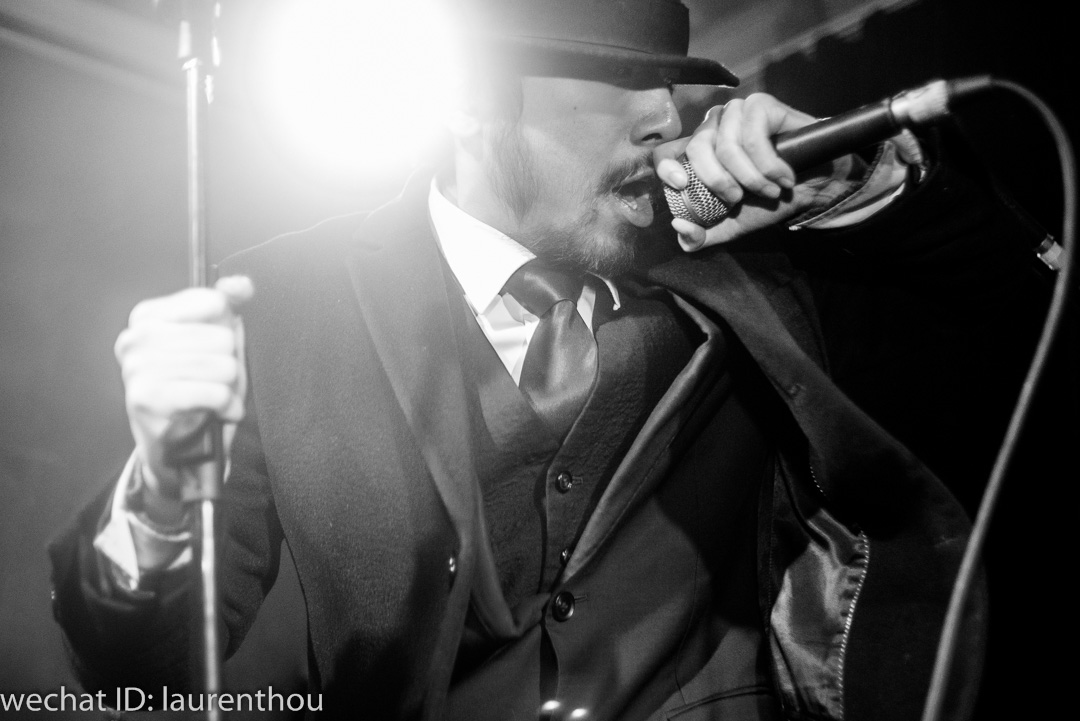
photo by Laurent Hou
2. The Mad Rapper
pangbianr: Do you have a better memory of that time, after your father got custody of you?
Dawei: My memories start to get really clear from high school. The first time I ever entered a freestyle battle was during my first year of high school. I’d go to White Rabbit on Haoyun Jie [Lucky Street] in my school uniform. It was so underground, literally in a basement. It was just like the movie 8 Mile. I’d get really scared, because everyone looked so big, so tall, and I was just a schoolboy. I’d go to the bathroom and vomit before the battle.
pangbianr: How did you first get into hip hop?
Dawei: This is a question I’ve answered in many interviews. A lot of artists, when asked this question, will make up a “music changed my life” kind of story to make it sound more compelling. I used to do that too. I’d say, “One day I was walking down the street and I heard Wu Tang Clan, and I got really interested in hip hop.” Or, “One day I heard James Brown, and I got inspired.” But the truth is, it’s a natural course of events. I forget how it all began, it just happened.
For freestyling, my first memory was watching a video with Eminem in it. I had no idea who Eminem was or what they were doing. I understood it as just two people cursing at each other. Later I learned that it’s something called a freestyle battle, that they’re listening to music and doing it on the spot, improvising. I was so amazed by the form, how you can improvise, argue to a beat, with the crowd cheering it on.
At first I didn’t believe that anyone could do such a thing, freestyle to a rhythm as if they were talking. So I started to do some research about it. There was an online hip hop forum where people would upload videos and beats and discuss them. I downloaded a few beats and tried to talk to the beat. And I thought, “Shit, this isn’t happening.” I pictured myself maybe saying four sentences and then stopping. Then I played the beat, and I didn’t know where to start. [laughs]
pangbianr: How did you get involved in the community of other people doing this in Beijing?
Dawei: I signed up for my first battle at White Rabbit because of my classmate, who was also really into hip hop at the time. He had enough self-knowledge to realize he didn’t want to rap himself, but he thought I had it. So we’d practice together. My classmate was better at using the internet, so he’d download beats, and every day during the lunch break we’d go to the fourth floor of our building, to the bio lab, because there was no one there. We didn’t have the balls to turn on the lights, we were afraid the teachers would find out. So we’d sneak into the lab and practice in the dark.
My classmate became my first DJ, he’d play beats on his shitty Nokia phone. And I’d practice, starting with one line, repeating that for days. Then I might be able to say two lines, then more, and more, and more. One day my classmate said, “I think you’re at the level of B-Rabbit,” — Eminem’s character in 8 Mile — “I’m gonna sign you up for a battle.” And he really found a battle to sign me up for! [laughs]
pangbianr: So how did you do at that first battle? Did you suck? Were you good?
Dawei: I won the first battle, I was champion of the night. When the beat started, somehow a different personality took over. I became someone that even I was scared of. I yelled out a lot of words, I don’t know where they came from. Earlier this year, I got a private message on Weibo. This guy said, “Dawei, a lot of people say that they like you, but I truly love you. I have been there since your very first battle in ’07 at White Rabbit.” And he attached a short cellphone video of that battle, where I was saying… My opponent was a guy who ran a barbecue stand for a restaurant, and I said something like, “做的是烧烤,烤的是你自己的屌” (“You run a barbecue stand / roasting your own cock”). So that obviously shocked and amazed everyone. [laughs]
I was a short kid in a high school uniform, the audience had no clue what was happening. They were shocked to death. My mom is really short, not even 1.5 meters tall. Such vicious words coming from such a small person makes it way more powerful. Because it doesn’t fit the popular imagination of a big, tall, intimidating figure. That shocked the audience more, such hardcore words coming from a fifteen-year-old boy. I think my mom was my best freestyle teacher. [laughs]
pangbianr: Did you have the name Dawei (大卫) already?
Dawei: Yeah, I’ve been using that name since my first battle. I don’t have a stage name or alias of any kind, Dawei is my name. My grandpa gave me the name because I wouldn’t eat much as a kid, and they wanted me to eat more. As my nickname, Dawei was originally 大胃 [“big stomach”]. But that wei [胃] is too dumb, so I changed it to 卫. 大卫 looks better and has a religious meaning, like the David who fought Goliath in the Bible.
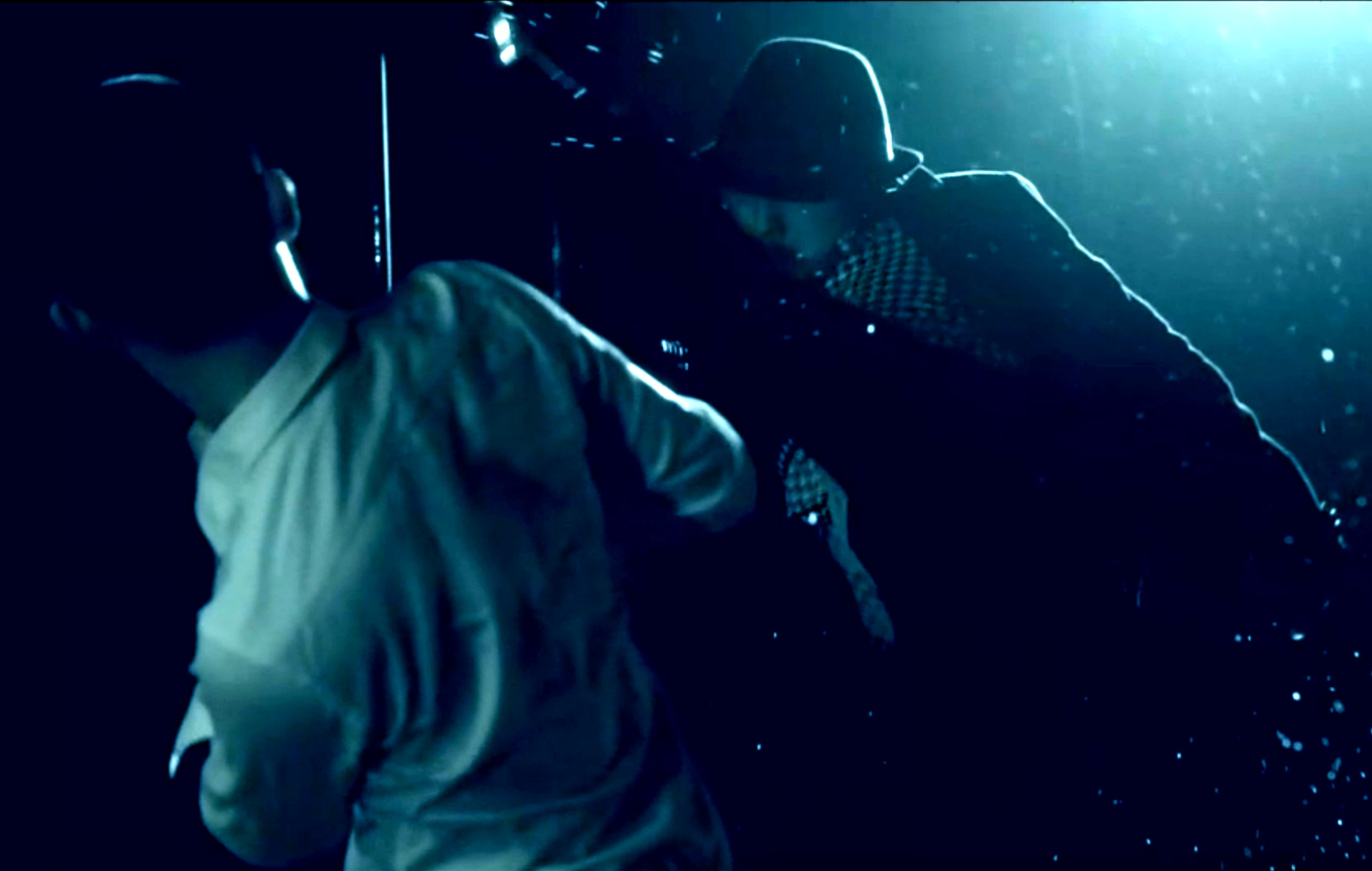
3. In the Ring
pangbianr: You also studied martial arts quite seriously when you were young. How did you get into that?
Dawei: When I was a kid, I used to get sick all the time. And since I was really short I’d get bullied a lot. I think that out of a hundred people who study martial arts, for 99 of them it’s because they were watching Bruce Lee movies. It’s weird — Jet Li or Jackie Chan’s movies make you get into kung fu movies, but Bruce Lee’s movies make you want to actually learn kung fu. In all of his famous movies, the plot is always Bruce Lee kicking the asses of people who bully him. Fist of Fury is set in Shanghai occupied by Imperialists, and he fights them off. Bruce Lee’s movies give an ideology that you fight against people who bully you. It’s the same truth between a colonized city fighting the colonizers and a bullied kid fighting the kids who bully him. So after watching Bruce Lee’s movies, I decided I had to start learning kung fu.
pangbianr: When was that?
Dawei: Around when I was 11, before I went to middle school.
pangbianr: Did you have a teacher? Did you compete?
Dawei: I was sent to training camp for Jeet Kun Do [jiequandao/截拳道]. Different training camps would organize competitions for their best fighters to compete, to attract future clients, and the teacher thought I would be appealing to their target clients. Again, it was about me being short, but so fast and furious when fighting. It’s the contrast between the quiet, small boy and the vicious fighter. My opponents tended to underestimate me.
pangbianr: What’s the highest level you reached?
Dawei: The highest-level competition I ever went to was the competition that broke me, ended my professional career. It was a national competition hosted by the most famous website in the kung fu scene, Wusaiwang [武塞网]. Everyone who does kung fu in the country knows that website. I was 16 at the time.
pangbianr: What happened?
Dawei: I fucked up. [laughs] When I was learning Jeet Kun Do, our training leaned more towards free combat [san da/散打] rather than mixed martial arts. We missed a lot of floor training. But in a competition like this, you meet fighters from different backgrounds. So in this one match, I was facing a guy who was a judo master. He was really weak in above-floor fighting. But after I put him down, he dragged my clothes and got me on the floor, and pinned me in a classic joint lock. At the time I thought, “How can people not get out of this kind of lock? That’s just in the movies. If you try really hard you can get away from it.” So I tried really hard. I struggled and struggled and struggled. Then I felt a searing pain. That’s how I fucked up. I tore the muscles connecting my arm and chest.

4. From Soldier to Poet
pangbianr: So that was the end of your fighting career. But at the same time you were starting your MC career. After your first battle, how did you get deeper into the scene?
Dawei: When I was learning to freestyle, and learning about hip hop culture, the word “respect” always came up. I knew what that word meant literally, but I didn’t understand its deeper significance. After winning my first battle at White Rabbit, I really understood what respect meant. Everyone at the bar, including the security guards, everyone went crazy. People wanted to drink with me, everyone wanted my phone number. That’s the moment I understood what respect meant.
I’m not going to repeat what my childhood was like, but, you know, after going through a childhood like that, gaining that kind of respect in public meant the world to me. So I started looking for battles. I couldn’t resist the urge of wanting to gain that respect over and over again.
pangbianr: What was the highest level that you reached on the battle circuit?
Dawei: It was in 2011, Nike hosted an invite-only MC battle. They selected the four best rappers from different regions of the country to compete for the title of best rapper. And I won that one. The reason I got so crazy at that battle was because Nike made the stage look like a boxing ring. It was a fighting arena. Which brought back my hatred towards my defeat in the competition that ended my actual fighting career. So with that revenge attitude, and several years’ training with words, I defeated everyone.
Someone recently reposted the video from that battle online. As I was watching the video, I noticed that I couldn’t help punching and kicking while freestlying. The judge at that battle told me afterwards, “We’ve never seen anyone who battles this way. It’s really frightening. Even if we wanted to, we wouldn’t have the balls to claim that you lost.”
pangbianr: When did you make the transition from freestyling to writing?
Dawei: The reason why I practice freestyle is because it enhances my confidence to do close to no planning, to achieve my expression without planning ahead. After I won the Nike battle, the biggest battle I’ve ever won, that night I got back to my hotel and I wrote my very first song, ”Shan Zhong Sun [山中孙]”. That’s when I decided: “Ok, I will take the gift that freestyling has given me and put it into writing.”
***
Dawei has just released Lust, Scars, The Insulted Man, a box set containing a CD, a DVD of self-directed music videos, and a book of his poetry. Stream it here and buy it here. And tune in next week for Part II of this interview series: Dawei, the Poet (诗人).
*This interview was conducted in Chinese and translated to English by Emma Sun
